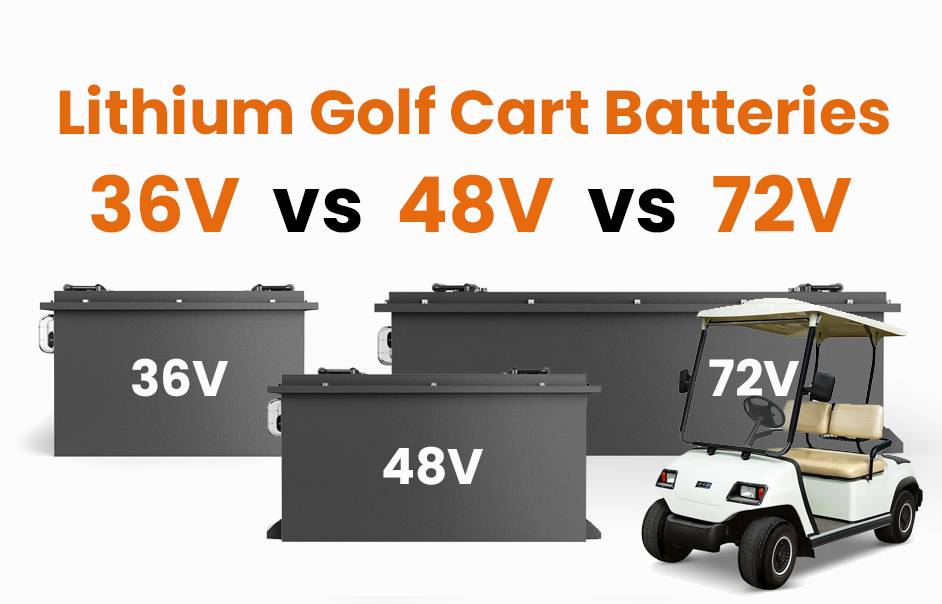
Blog
How Do Lithium Batteries Outperform Lead Acid Batteries in Golf Carts?

Lithium batteries outperform lead acid batteries in golf carts by offering longer lifespans, lighter weight, higher energy density, consistent power output, and lower maintenance. They deliver superior cycle life—often 3,000 to 5,000 cycles compared to lead acid’s 300–500—and maintain steady voltage without performance drop-off during discharge. These advantages translate into longer range, faster acceleration, and greater reliability for golf cart users.
What Are the Key Performance Advantages of Lithium Over Lead Acid Batteries?
Lithium batteries provide a higher energy-to-weight ratio, allowing golf carts to operate longer on lighter battery packs. Unlike lead acid, lithium delivers consistent voltage until near depletion, avoiding power drops. Moreover, lower internal resistance improves efficiency, enabling faster charging and better response during high loads such as hill climbing or rapid acceleration.
How Does the Lifespan of Lithium Batteries Compare to Lead Acid in Golf Carts?
Lithium batteries typically last 3,000 to 5,000 charge cycles, which can equate to 7–10 years of service, whereas lead acid batteries last 300–500 cycles, roughly 2–3 years for average golf cart use. Lithium’s superior chemistry prevents sulfation and capacity loss, extending both cycle and calendar life significantly.
Why Are Lithium Batteries Lighter and How Does This Impact Golf Cart Performance?
Lithium batteries weigh up to 60% less than comparable lead acid batteries due to higher energy density (typically 150–200 Wh/kg vs. 30–50 Wh/kg). This weight reduction decreases overall cart mass, improving acceleration, maneuverability, and energy efficiency, which in turn increases the effective driving range and reduces strain on mechanical components.
What Maintenance Differences Exist Between Lithium and Lead Acid Batteries?
Lead acid batteries require regular maintenance, including water level checks, terminal cleaning, and equalization charges to prevent sulfation. Lithium batteries are virtually maintenance-free, sealed, and resist corrosion or electrolyte loss. This reduces downtime and maintenance costs—an important factor in fleet operations and frequent users.
How Does Battery Charging Efficiency Differ Between Lithium and Lead Acid?
Lithium batteries boast 95% charge efficiency, meaning less energy wasted and shorter charging times, while lead acid batteries typically have 70–85% efficiency and longer recharge periods. Efficient charging reduces electricity costs and maximizes battery availability for golf cart use.
Are Lithium Batteries Safer and More Environmentally Friendly Than Lead Acid?
Lithium batteries, particularly those using LiFePO4 chemistry, are stable, non-toxic, and have built-in Battery Management Systems (BMS) that prevent overcharge, over-discharge, and thermal issues. Lead acid batteries contain toxic lead and corrosive acid, necessitating careful disposal and spill management, posing environmental risks.
How Does Consistent Voltage Output from Lithium Batteries Affect Golf Cart Operation?
Lithium batteries maintain near-constant voltage until nearly fully discharged, unlike lead acid batteries whose voltage drops steadily as they discharge. This consistent voltage supplies the golf cart motor with stable power, ensuring smooth acceleration and speed throughout the battery’s charge cycle, improving user experience.
What Are the Cost Considerations When Choosing Lithium Over Lead Acid?
Although lithium batteries have a higher upfront cost—often 2 to 3 times that of lead acid—their longer lifespan, reduced maintenance, higher efficiency, and lower replacement frequency result in lower total cost of ownership over time. Users save money on replacement batteries, labor, and energy bills.
Battery Cost and Lifecycle Comparison
| Battery Type | Initial Cost | Approximate Cycle Life | Maintenance Cost | Total Cost Over 10 Years |
|---|---|---|---|---|
| Lead Acid | Low ($600-1200) | 300-500 | High | Higher |
| Lithium (LiFePO4) | Higher ($1500-3500) | 3000-5000 | Low | Lower |
How Does Redway Power Contribute to Lithium Battery Performance in Golf Carts?
Redway Power, leveraging 13 years of rigorous OEM experience and ISO 9001:2015 certification, produces state-of-the-art lithium battery packs for golf carts. Their use of MES manufacturing systems ensures precise quality control, enhancing cycle life, safety features, and tailored battery management. Their lithium packs deliver superior power density and operational reliability, empowering golf carts with cutting-edge energy solutions.
Redway Power Expert Views
“Lithium batteries revolutionize golf cart performance, transforming traditional limits on range and durability,” notes Dr. Jian Liu, senior battery engineer at Redway Power. “Our MES-driven OEM production delivers meticulously engineered LiFePO4 cells with integrated BMS for unrivaled safety and lifespan. This technology shift benefits operators by combining high power output, weight reduction, and maintenance freedom—all essential for modern golf cart efficiency.”
Conclusion
Lithium batteries outclass lead acid batteries in golf carts across crucial performance metrics: lifespan, weight, maintenance, charging efficiency, and stable power delivery. Although lithium entails higher initial investment, the long-term operational and cost advantages are profound. Choosing lithium, especially from trusted manufacturers like Redway Power, guarantees enhanced reliability, safety, and driving experience in golf cart applications.
FAQs
Q: How much longer do lithium batteries last compared to lead acid?
A: Lithium batteries typically last 6 to 10 years, 3 to 5 times longer than lead acid batteries.
Q: Are lithium batteries safer than lead acid?
A: Yes, lithium batteries with LiFePO4 chemistry and BMS are safer, with reduced risk of leaks and thermal events.
Q: Can lithium batteries handle cold weather better than lead acid?
A: Lithium batteries have lower performance in extreme cold but maintain voltage longer and recover faster than lead acid.
Q: Do lithium batteries require special chargers?
A: Yes, lithium batteries need chargers compatible with their chemistry and integrated BMS for safe charging.
Q: Does Redway Power produce custom lithium packs for golf carts?
A: Yes, Redway Power offers customized OEM lithium battery packs designed specifically for golf cart applications, ensuring optimal performance.




